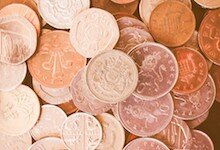Being Free – Without an Excuse?
August 1, 2004
Is the national era more or less free than the previous ones? And is freedom given free of charge? PIW editor Rami Saari looks at Salman Masalha’s poem ‘On Artistic Freedom in the National Era’, and finds that there is a price attached.
Salman Masalha’s On Artistic Freedom in the National Era begins with the expression ‘because’, which reappears in the original Hebrew text five times before the arrival of a major statement:
I can, under such
extenuating circumstances, sometimes
allow myself to be human,
a bit free.
The question may be asked whether such a small bit of freedom requires so many justifications, explanations, arguments and excuses. Apparently it does. The possibility of being just a human being, without religious labels, national baggage, political obligations or public missions, can’t be taken for granted, and this freedom doesn’t fall into everyone’s lap, certainly not in places where historical conflicts, nationalistic or religious, form not only headlines but painful, everyday reality. The title speaks of artistic freedom, and at the beginning of the poem it seems that the national era, or, even more, the nationalistic era, is the factor which limits the freedom of artistic creation. As one continues to read, however, it becomes clear that not only artistic freedom is under discussion, but freedom in general—the freedom to be, to live without restraints, the freedom to be free.
The French Revolution and the Spring of Nations brought humanity the wonderful fulfillment of the desire for personal and national freedom, but the twentieth century has known an uncounted numbers of blows and disasters because of nationalistic zealousness, xenophobia, racism and religious fanaticism. The first four years of the twenty-first century are not cause for unreserved optimism: the gap between the poor and the wealthy threatens us all; the spread of AIDS and natural disasters make daily headlines; the clash between western civilization and its enemies does not bode well; and the pessimists who are our prophets predict that economically, culturally and religiously we stand once again on the brink of dark ages. Freedom, like the welfare state and its pension rights, which we thought, for a decade or two, here and there, that we’d nearly attained, now seems like something rare and valuable, often just a dream or an illusion.
The freedom discussed by Masalha in his poem carries a price he does not ignore, but on which he does not focus: the right to be free is conditioned by the ability not to completely belong – to a people, a state, a language, a place, a culture, a tribe, a flock. This positive capability is named by those who see it as a negative trait, as alienation, anomie, or indifference, but freedom and caring for the Other are not contradictory terms. Like everything else, freedom too is not given as a free gift, for the freedom to create and for the freedom to be free one must struggle, no less now than in the past.




